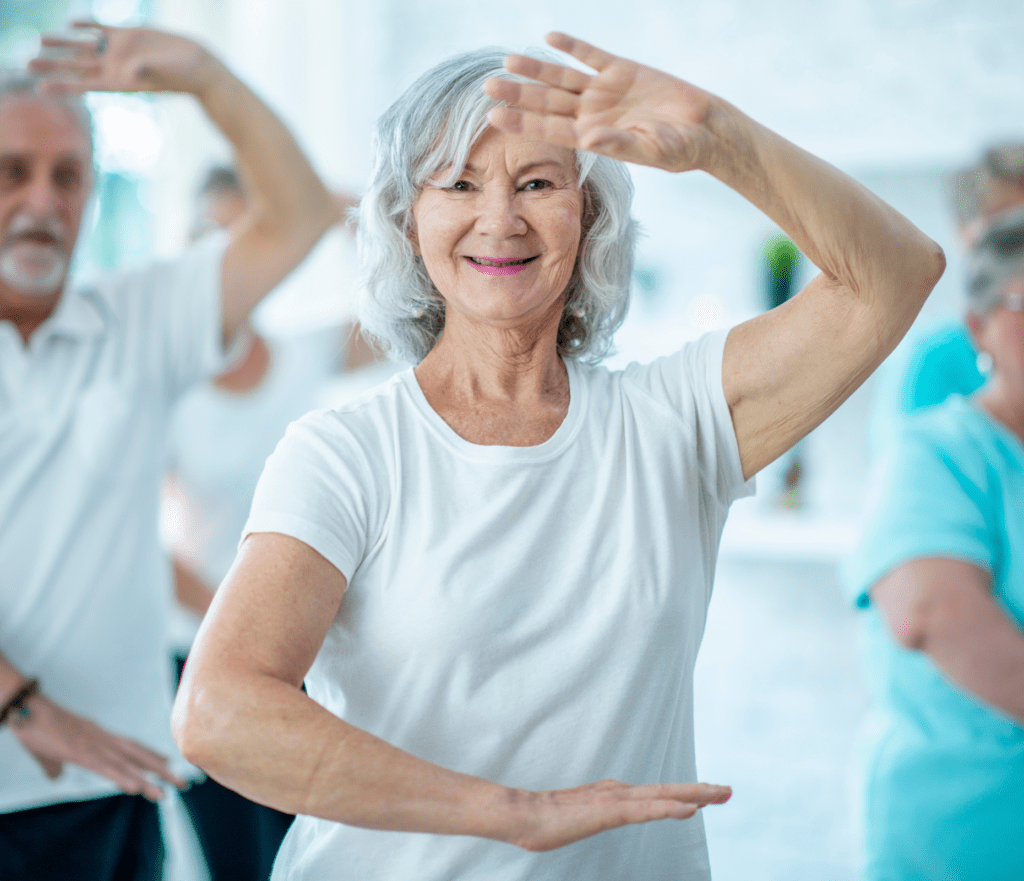Tai Ji Quan: Good For Your Balance and Brain!
- January 8, 2024

Tai Ji Quan: Movement for Better Balance has been repeatedly shown to improve balance, strengthen stability muscles, and reduces the risk of falls in older adults. But, are there other benefits to this evidence based fall prevention program?
The Brain and Cognition:
- Neuroimaging Studies: Research employing MRI and fMRI techniques shows associations between Tai Ji Quan and brain structure. Specific brain regions that are responsible for problem solving, cognition, memory recall, and creative thinking are all positively affected by Tai Ji Quan.
- Brain Activation: Studies using fMRI and ERP techniques detect distinct neural activations in older adults. Reduced brain activity may signify cognitive deficits, while increased activity could indicate compensatory activities in response to aging. Exercises like the ones performed in Tai Ji Quan may slow down or even reverse age-related declines in brain activation.
Cardiovascular Fitness:
- Brain Structure & Cardio Fitness: Cardiovascular fitness correlates positively with brain mass and specific brain regions in older adults, suggesting a link between cardiovascular fitness and brain health.
- Tai Ji Quan & Cardio Fitness: Studies have shown significant increases in cardiovascular fitness when individuals at risk of falling complete the Tai Ji Quan program.
Motor Fitness:
- Physical Fitness Enhancement: Tai Ji Quan improves motor fitness, including muscle strength, endurance, flexibility, and balance.
- Motor Fitness & Cognition: Studies reveal a positive correlation between motor fitness levels and better cognitive performance, indicating a potential link between Tai Ji Quan’s impact on motor fitness and cognition.
Movement Coordination:
- Improved Coordination: Tai Ji Quan’s unique movements involving coordination might influence cognition. Coordination training has shown potential for improving cognitive performance and brain activation in younger individuals, hinting at similar effects in older adults.
Social Interaction:
- Psychosocial Aspects: Tai Ji Quan involves substantial social interaction, contributing to cognitive benefits similar to those seen in social interaction groups. Studies indicate that social interaction may positively impact brain function and cognition.
Meditation:
- Mindfulness Component: Tai Ji Quan’s meditation elements possibly influence cognition through increased brain activation and structural changes, as observed in individuals practicing meditation.
Overall:
There are many different ways that Tai Ji Quan: Movement for Better Balance can potentially influence brain health as we age!
Click Here for more info about Tai Ji Quan!
Click Here for the scientific article this post is based on.
Past Stories
Published on Mar 27, 2024
This new article discusses how eggs can help bone health, particularly in preventing osteoporosis. Osteoporosis, characterized by weakened bones prone to fractures, is a significant health concern, especially among older […]
Published on Feb 12, 2024
Powerlifting is a sport where participants get several attempts to squat, bench press, and deadlift as much weight as they can to create the highest three-lift total they are capable […]
Published on Feb 12, 2024
The MAC/Life Bridges Alzheimer’s Support Group will no longer meet evenings (second Tuesday). The daytime meeting of the Caregiver’s Support Group will continue to meet on the second and fourth […]
